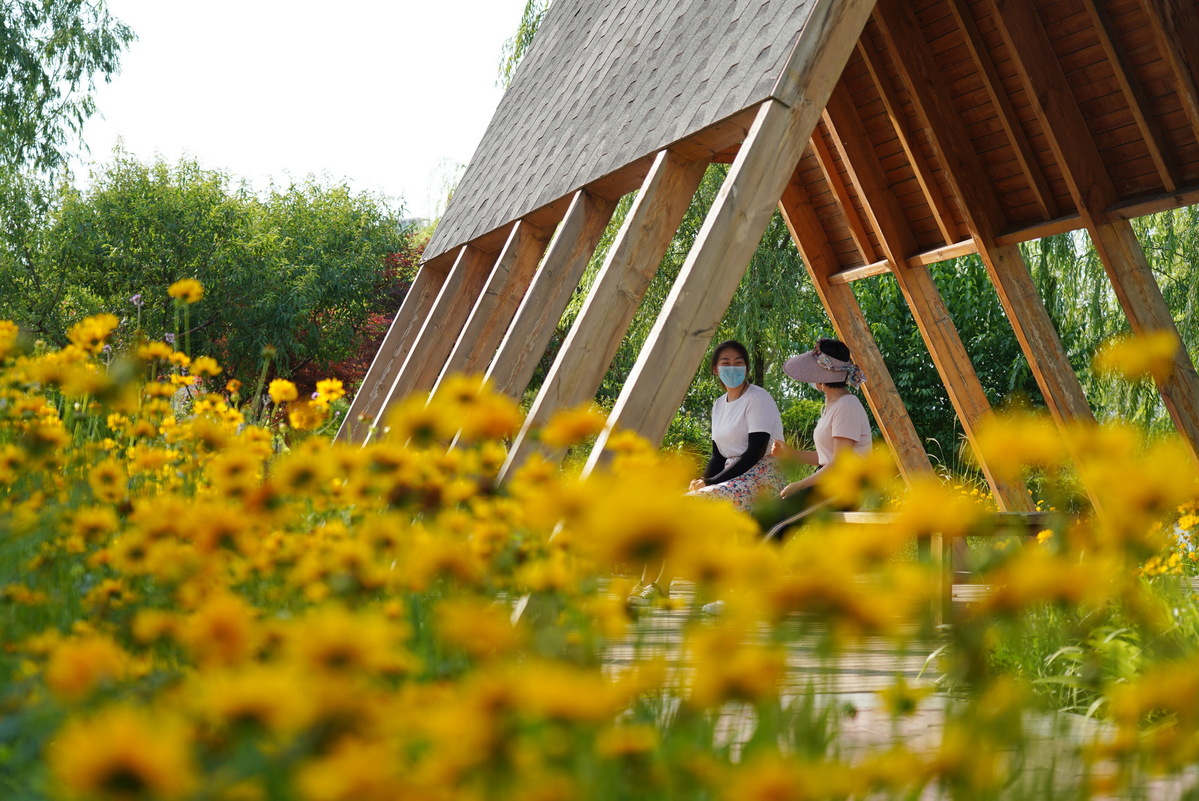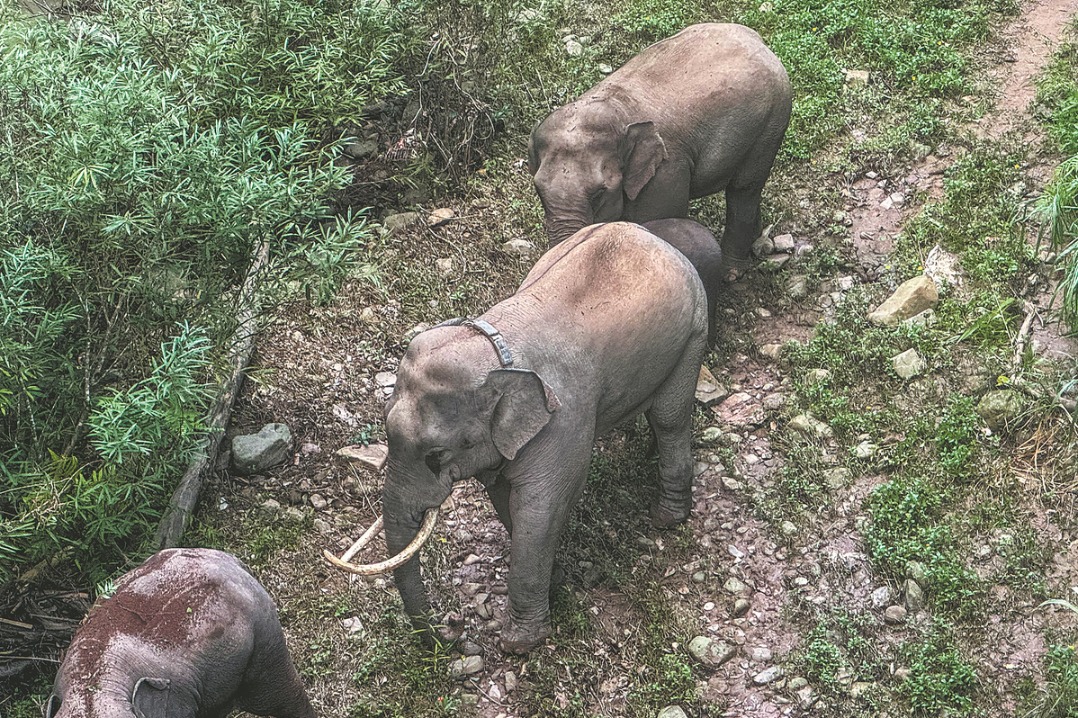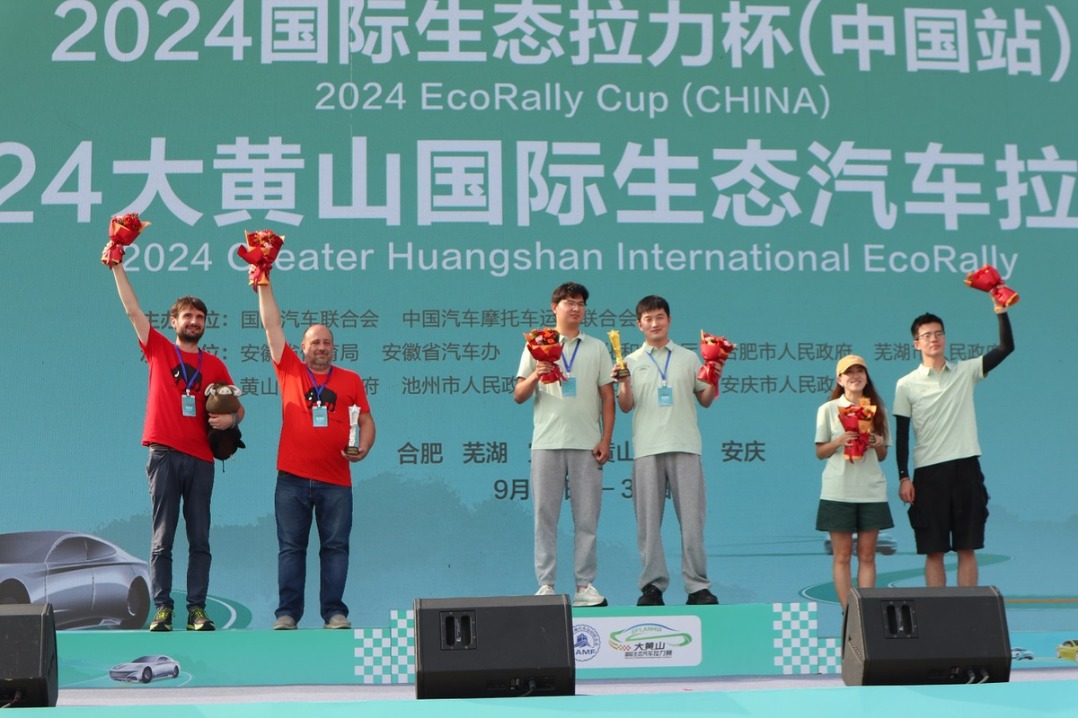Blue skies return to Hebei's coal mining area


Black smoke spewing from coal mines has disappeared, blue skies have returned and Shi Yalan, a resident of Fengfeng mining district of Handan, Hebei province, now enjoys jogging every day in a city park, her eyes filled with green.
Shi has experienced the change in the environment in her home city.
"I used to jog down the street, and my sneakers would be literally covered with dust not long after I started to run," she said, adding that the environment has been improved in the coal-mining area and now she usually runs 10 to 20 kilometers in the park without worrying about inhaling dust.
Located in the north of the district, Qingquan wetland park, spanning 40 hectares, was transformed through afforestation, land reinforcement and water treatment. It opened to the public in September 2017.
Now, the park has become an oasis in the city with a wide swath of plants and water and has attracted wild animals including black swans and mandarin ducks.
Zuo Lixin, head of Fengfeng's water conservancy bureau, said that the district has already transformed 13 collapsed mining lands into wetland parks, accounting for 80 percent of the subsidence areas in the district.
The natural rehabilitation efforts have improved water quality and the environment and have provided leisure and entertainment sites for more than 200,000 people in 40 villages in the region, he said.
"Now, people can enjoy a beautiful landscape of rivers and water areas in their own city," he added.
The ecological management of the Qingquan wetland park is an example of the district's natural restoration work.
Fengfeng was a traditional industrial area with abundant mining resources, but long and high-intensity exploitation has left the area with ecological scars-depleted resources, collapsed and abandoned land and gloomy weather with haze in the air.
"People could not go out without wearing masks, glasses and gloves, and wearing a white skirt was also a luxury in the past," said Chen Zhenli, Party chief of Fengfeng.
"In October 2017, we ranked lowest in the environmental assessment of Hebei province," he said.
To implement the "lucid waters and lush mountains are invaluable assets" concept proposed by President Xi Jinping and contribute to the battle against air pollution, the district has shut down poorly managed and polluting enterprises since 2018 and has invested 1 billion yuan ($146 million) from 2017 to 2019 to repair 13 mining subsidence areas, 108 open-pit mines and two rivers running through the district.
By the end of 2021, the district will increase forest coverage from about 17 percent in 2016 to 55 percent, he said.
Last year, there were 180 days with good or excellent air quality, up from 68 days in 2016.
That number is expected to exceed 200 this year, he added.
Changes in the damaged environment have also reduced residents' doubts and complaints about the government's decision to ban the exploitation of mines, especially those engaged in related businesses.
Liu Runsheng, 53, worked at a stone quarry for three years, with daily production reaching 2,000 metric tons.
"When the quarry closed in 2018, I grumbled at the government's decision because I earned a good income at that time and didn't know what I could do if I lost the job," Liu said.
However, he admitted he had suffered from the dusty environment.
"I could see nothing but bare hills in the past, and as I lived near the mining area, I had to keep my windows closed and covered with plastic sheets," Liu said.
Years of work at the quarry has left him with chronic congestion that required surgery to treat, and many miners had black lung.
Although his income is less than it was at his previous job, the environment is better than before and health matters most at his age, he said.
The change in the environment also improved the quality of his life, and now he can exercise daily at a former mine site converted into a forest park, he added.
The development of a district is not just about providing residents with a good living environment, but also requires economic development and financial support, said Chen, the secretary.
While promoting clean transformation of traditional industries, the district has been developing four leading industries: new equipment, new materials, new service industries and electronic information industries.
Such industries have helped the district to achieve an innovative, green and high-quality development, he said.
In 2019, the district's fiscal revenue exceeded 3 billion yuan, up 0.9 billion over 2016, with tax accounting for 86 percent.
- China launches crackdown on illegal online news services
- Taiwan continues to feel the brunt of typhoon Krathon
- UN envoy: In 75 years, China has risen from sufferings to strength
- Handicrafts build strong familial bond
- F&B packaging births new generation of collectors
- Fujian raftsman making life more than just staying afloat





































